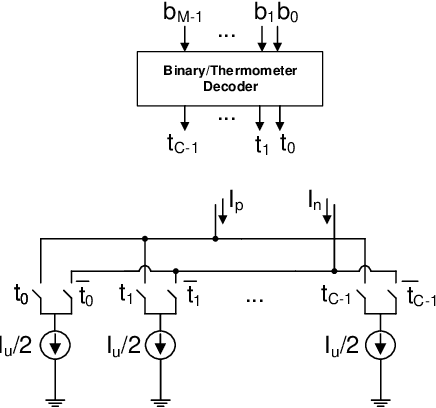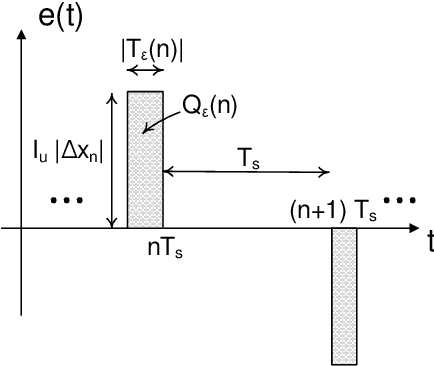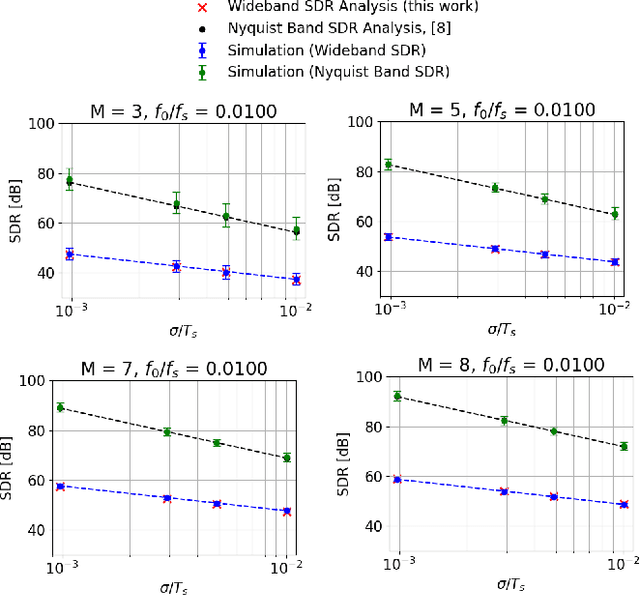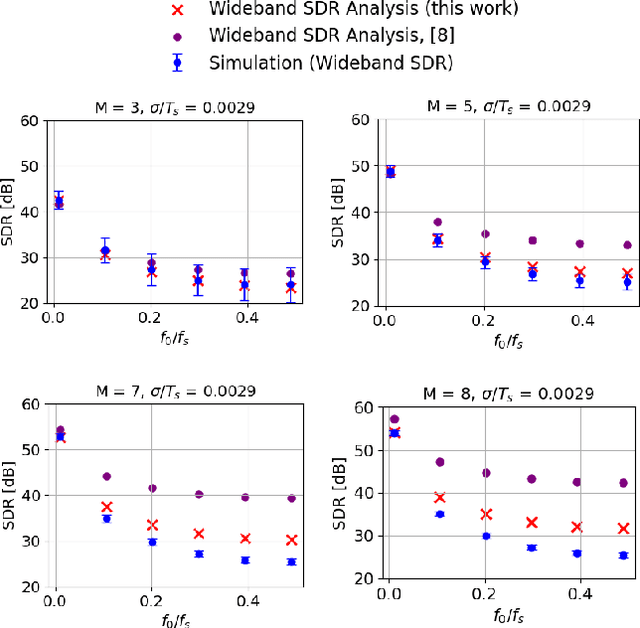Improved Analysis of Current-Steering DACs Using Equivalent Timing Errors
Paper and Code
Mar 16, 2022



Current-steering (CS) digital-to-analog converters (DACs) generate analog signals by combining weighted current sources. Ideally, the current sources are combined at each switching instant simultaneously. However, this is not true in practice due to timing mismatch, resulting in nonlinear distortion. This work uses the equivalent timing error model, introduced by previous work, to analyze the signal-to-distortion ratio (SDR) resulting from these timing errors. Using a behavioral simulation model we demonstrate that our analysis is significantly more accurate than the previous methods. We also use our simulation model to investigate the effect of timing mismatch in partially-segmented CS-DACs, i.e., those comprised of both equally-weighted and binary-weighted current sources.
 Add to Chrome
Add to Chrome Add to Firefox
Add to Firefox Add to Edge
Add to Edge